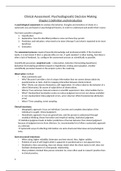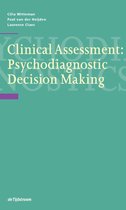Summary
Summary book Clinical Assessment: Psychodiagnostic Decision Making
- Course
- Institution
- Book
Summary of the book Clinical Assessment: Psychodiagnostic Decision Making. The corresponding course is Clinical Assessment and Decision Making at the Radboud University, bachelor year 3.
[Show more]




